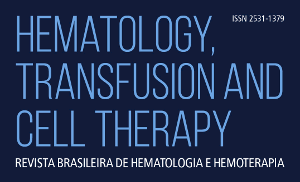ABSTRACT
Background:
Older patients with acute myeloid leukemia are particularly difficult to treat, as they have a high risk of comorbidities, poor performance status and less tolerability to chemotherapy, as well as a more aggressive disease biology, responsible for the resistance to treatment. There is a need to explore novel therapeutic agents that are more effective and tolerable. Venetoclax, a BCL-2 inhibitor is a promising agent, as BCL-2 overexpression is present in 84% of acute myeloid leukemia patients at diagnosis and 95% of patients at relapse and has been associated with leukemia cell survival, chemotherapy resistance and poor prognosis.
Objective:
To review the available data about venetoclax in acute myeloid leukemia and how it can influence the treatment in older patients.
Methods:
Using the Pubmed database, we selected 29 articles published within the last 15 years, considering preclinical and clinical trials and review studies that combined venetoclax with acute myeloid leukemia.
Results:
Venetoclax has demonstrated promising results in preclinical and clinical trials, especially in patients with poor prognosis and the IDH mutation, with an excellent side-effect profile. However, resistance seems to develop rapidly with venetoclax monotherapy, because of antiapoptotic escape mechanisms.
Conclusions:
While the results with the use of venetoclax seem encouraging, it is not likely that targeting a single pathway will result in long-term disease control. The solution includes the use of combined therapy to block resistance mechanisms and enhance apoptosis, by reducing MCL-1, increasing BIM or inhibiting the complex IV in the mitochondria.
Keywords:
AML; BH3-mimetics; BCL-2; Target therapy; ABT-199; Venetoclax

